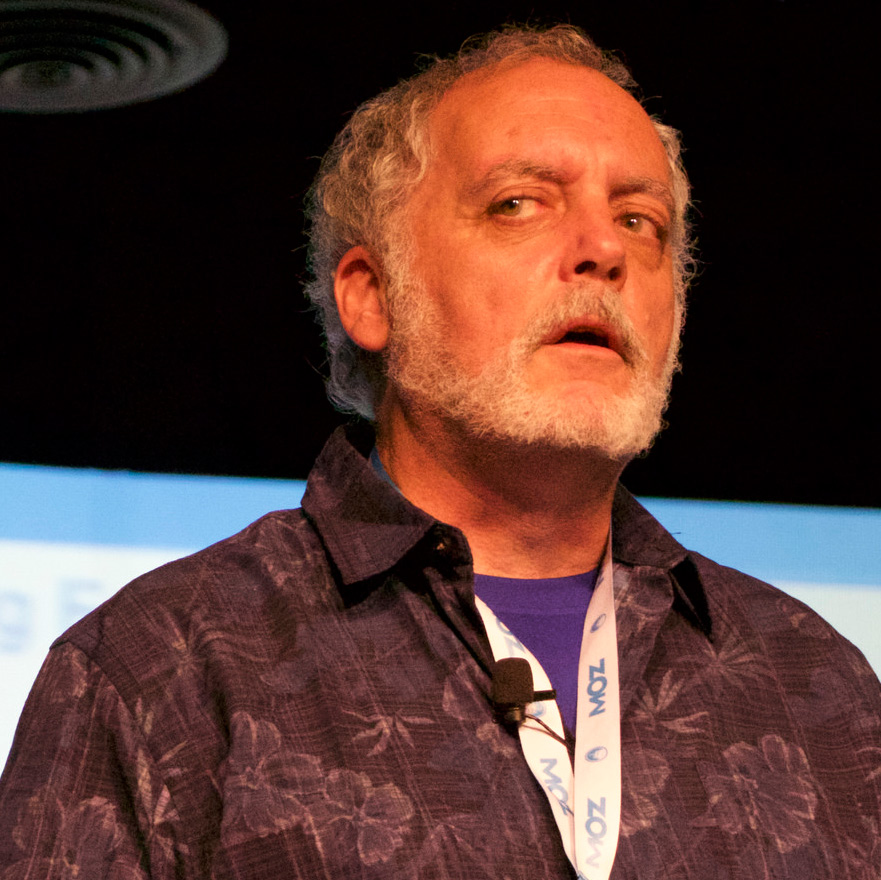As we prepare to wrap up yet another year in search, there’s a great handful of items we can look forward to and shift our focus towards.
SEO has a few strategies that do stand the test of time year after year, but with the advancement of technology, amount of data available, and smarter searchers searching for an answer, there are new strategies on the horizon.
We asked some of the industry’s best SEO’s what we can all expect with SEO in 2020 in a webinar last week.
Panelists, Michelle Robbins – VP Product & Innovation of Aimclear, Duane Forrester – VP Industry Insights of Yext, and Cindy Krum – CEO & Founder of MobileMoxie, shared their take on what SEO will look like in 2020, including some of their top tips, predictions, and how to survive. Watch a reply of the webinar below.
We also took to the inner webs and reached out to even more of the industry’s best SEO’s for their take. See what they had to share below.
1. Are there any new search engines we should focus on in 2020? Or just focus on the king, Google?
Jackie Chu
At the global scale I think Google is so ahead of the market it would be difficult to overthrow them. Generally something has to be magnitudes (10x better) than the incumbent to displace them. I think its a safe bet to assume Google will remain the leader through 2020. The good thing is most of the Google best practices also apply to other search engines, they’re generally just less far along in regards to advanced directives or rendering capabilities.
Alan Bleiweiss
To be honest, I do not keep up, beyond surface awareness, with new search engines as they are discovered or emerge. The only exception to my fixation on Google is when a particular client has a clear and obvious specialty or geographic need to take advantage of some other offering. Which, for me, is very rare given the overwhelming majority of my clients all benefit most from Google. Whether it’s here in the US, or the UK, Australia, Singapore, Canada, where I routinely get clients from.
Topher Kohan
In 2020, Google will still be king of traditional search engines (you should always keep an eye on Bing). But, with more and more users looking at social and other networks for information, I believe smart marketers should be expanding the user research they do and spend time targeting existing and new audiences in those places.
Stephen Esketzis
From building media brands and publishing companies, it’s still obvious Google is by far the king of search. I’d solely focus on building and ranking for Google and by design you’ll end up getting picked up on other search engines like Bing etc. Unfortunately there’s still no other search engine that can compete with the King.
2. What are a few evergreen SEO strategies that brands and businesses can do regardless of how search engines change?
Jackie Chu
I have a unique point of view on content – there’s no use regurgitating Wikipedia/the myriad of other resources out there. Especially with things like E-A-T, I think content without a unique point of view or authority will continue to be devalued.
Remember that Google is pattern matching machine that’s optimizing for the majority. It’s still important to create a strong HTML footprint of key content and navigational elements of a page. Having a logical site structure and fast pages is good for both users and bots. Server side render content when possible because javascript rendering is costly. Make sure the placement of any high value content is in the “main content” of the page. Do not put anything important behind a user event like click or scroll. Use elements like anchored links that improve structure and user experience and continue to use schema/structured data when applicable. Get rid of pages that don’t serve you that you don’t want to improve.
Test test test. You should always be testing because each site is different and this is the only source of truth, not necessarily traditional “best practices” or what’s in the Google blog 🙂
Alan Bleiweiss
The moment you mention “evergreen”, the top, most important strategy that comes to mind is how so many continue to ignore evergreen content needs and fixate on either blogging or content marketing.
That’s not to say either is bad. It’s just that when I do an audit, I almost always find that “answer all the important questions” type needs are severely lacking. Or where a site answers SOME of those important questions, yet where they do so in a blog system. Which ends up burying that content and where it slowly degrades more over time as “newer” blog posts are written. Or where they do so on some other site through content marketing. Which mostly benefits those other sites, with secondary link equity coming back.
And both of those are weak because they’re orphaned from the main product or service page sections of the site itself we need to focus on as top priority.
Whatever the subject matter of a site’s focus, there are always opportunities (with the proper research) to discover more issues, questions, and concerns potential and existing customers/clients have. Which means there are always opportunities to do the competitive research (yes, this is the point where competitive research is most helpful), to see “who’s answering these questions now, and how can we do that better?”.
This is also a great example of “friction” – a critical evergreen need exists in SEO across many facets of User Experience. When visitors encounter too much friction on the way to making a decision as to whether to trust, never mind buy from a site, or become loyal or advocate for a site / business/brand, that’s a big issue. Because it means you’re alienating people who already got to your content/message/offer.
So some of the work is not about growing visibility. It’s about improving the quality for those you already reach.
Topher Kohan
I am a firm believer of not chasing the algorithm of any search engine. I believe that you should pay attention to your audiences and what they are searching and how they are searching.
The other big thing to pay attention to is your competitors ins and outs for the SERPS. Look at what they are doing and how you can use that to offer your audience more of what they are searching for and in a way that the engines can understand and use to help rank you higher.
Stephen Esketzis
At the end of the day it’s the ongoing improvements in your quality of content and quality of links which show the search engines you’re an important trustworthy source. No matter how search engines change, their goal is to use technology to deliver the best results and experiences to their users, otherwise they’ll end up finding a new solution.
So no matter what you do if you continue to consistently bring out world class content and people in your industry link to you and share your content then search engines will begin showing your website to more people in the SERPs. Being transparent and trustworthy in the process is also something which search engines will begin to favour more and more.
3. What strategies do you recommend local businesses focus on in 2020?
Alan Bleiweiss
Honestly, mostly the same strategies I have been recommending to local business owners and site managers for years. Stop thinking like a one-person or otherwise very small operation. Start thinking “What can I/we do that emulates what big brands do, yet where we just do it on our scale?”.
And what does that come down to?
Be helpful. In everything you do. And that includes in how you can gain visibility in your location(s)/region(s).
Focus some of your effort on how to meld “answer all the important questions” with “as that applies to each of the geographic areas we serve”. THAT then becomes material for evergreen content within geo-specific pages on-site, and for “outreach and PR geographically relevant off-site”.
And finally, I tell them “Don’t worry about the latest technology or the latest marketing wizardry people are talking about unless you are absolutely certain you’ve got all your other stuff in order”. So for example the whole “PWA” wave?
Useless and a waste of time for those who don’t have their true high-value work done and already bringing significant growth. And BERT talk? Ignore it. It’s a waste of time unless you are not already fixated on quality content that needs to prove you’re being helpful to site visitors. And if that’s the case, you almost certainly have bigger learning needs than what BERT means.
Topher Kohan
If I was doing SEO for a local business, I would advise them to keep up on the technical tasks that will help the user find them and interact with them. Also, keep an eye on the audiences and try to market to them where they actually are. That could be in Google or on their favorite social media network. Find ways to engage with them on their preferred platforms and drive them to your site or location from there to then make them a buyer, and not just a window shopper.
Stephen Esketzis
For a local business to succeed in 2020, it’s important that they focus on maximising their Google My Business (GMB) listing as well as their on page experience.
When someone is searching for a local business using Google it’s critical to have a well optimised listing which means, great positive reviews (and lots of of them), up to date photos and information about your business (E.g. hours, store photos, address etc.) and also optimising it for keywords that your customers are searching. Another easy win which will help small businesses stand out is listing the local suburbs that your brick and mortar business services and creating unique pages for them E.g. “home-cleaning-beverly-hills”, “home-cleaning-laguna-beach” etc. By optimising each page you’ll be able to capture people searching for specific services in their local area.
4. What is your biggest tip for agencies offering SEO in 2020?
Jackie Chu
I might get hanged for saying this – but I truly believe that the ethos of SEO stays the same throughout the years and algorithm updates.
I think one of the ways agencies can improve their SEO offerings is to always over communicate wins, make the client look good and get insanely good at visualizing the impact of their SEO efforts. This can be something as simple as using a tool like Clearscope to show how you can apply Natural Language Processing (NLP) to content, or using causal impact to show SEO wins while counting in seasonality. Very few SEOs can show the impact of their work in a clear, visual way and not only will this help you work smarter, not harder it will also impress your clients that you’re thinking about pushing the edge of what SEO really looks and feels like.
Alan Bleiweiss
Get the heck out of blog writing and content marketing as primary offerings if you havre been ignoring or blowing off on-site evergreen “answer all the important questions” needs as a primary evaluation and subsequent editorial requirement for client sites.
Agency clients who have taken my recommendation to heart in this regard have seen serious, significant growth of their business through client retention. Reduced churn. And of course, increased, serious success for their clients.
Topher Kohan
Work with as many different kinds of clients as possible and use your learnings to move each of them higher up in the SERPS. This will in turn, drive more useful audiences to the properties.
Stephen Esketzis
At my conference Digital Marketers Australia we have hundreds of agencies attending which offer SEO and help clients rank their businesses using SEO. The number one piece of advice I can give an agency which is going to offer SEO to clients is to be transparent and set expectations. A lot of small businesses work with agencies in the hope that they have a magic pill and will solve all their SEO problems in a wave of their wand. Some agencies flat out promise results they can’t get just to close a client on a retainer.
If you’re going to offer SEO services to a small business in 2020, be upfront with them and explain the process to getting them great results. What is a realistic budget? What’s a realistic time frame? What results can they expect? If you can be on the same page with your client before you begin working with them that will save you both time and headaches from nagging clients down the road.
Contributors:
Jackie Chu

Jackie is based in San Francisco, CA and is currently the SEO Lead at Dropbox. She’s also worked at Uber and Square where she drove SEO for the USCA rides business and ASO / upmarket / SaaS for Square. Prior to SEO she made a living in affiliate marketing peddling things you didn’t really need on Youtube.
Alan Bleiweiss

24 years internet marketing experience, with 19 in SEO, Alan specializes these days in forensic SEO audit and related consulting for businesses that need to find sustainable methods for organic growth. Serving clients from around the world, from medium to global enterprise entities, he doesn’t play games or sugar-coat your situation. If an issue is included in one of his audits, you can be sure it’s important for your business’ success. Semi-retired and currently living at Lake Tahoe in California, Alan takes on a select clientele who need to be willing to hear the truth about their situation and willing to do the work necessary to see results.
Topher Kohan

Topher Kohan came to The Weather Company after 2 years at Rockfish Interactive and after 5 years as the in-house SEO coordinator at CNN.com, a division of Turner broadcasting and a Time Warner company. While at Weather.com, Topher has grown search referrals by 26% over the last 4 years and with an average YoY growth of 11%. He helped oversee the larges search referrals days in the sites history and improved over platform Growth. Prior to CNN, Topher spent two years at the Centers for Disease Control and Prevention in Atlanta performing site maintenance and SEO.
Stephen Esketzis

Stephen Esketzis is the founder of Australia’s leading digital marketing conference, Digital Marketers Australia and is also the founder of the Media Property Collective, a digital media & publishing company. Stephen’s a serial entrepreneur who has grown multiple online businesses and is a leader in customer acquisition and brand building. He’s led the content marketing team at ClickFunnels and also has an expertise in building sales funnels, paid media and organic traffic across multiple niches.

